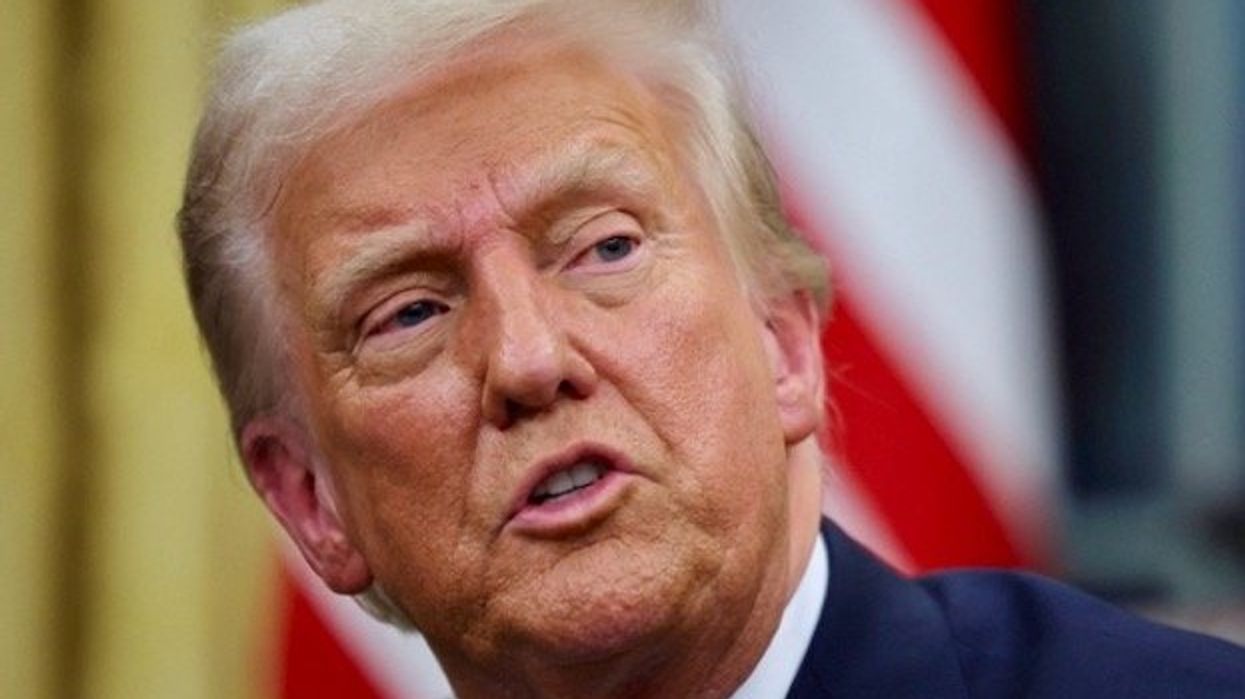
President Donald Trump has taken varied stances on TikTok, the wildly popular social media app that experts — including members of Congress and the FBI — warn poses risks to U.S. national security and raises significant privacy concerns for American users. Now, Trump is now disregarding those issues and leveraging his presidential authority to intervene in favor of the Chinese-owned platform, which, under federal law, was to be sold to a U.S. company or banned in the United States by January 19.
“Every rich person has called me about TikTok,” Trump declared to reporters Monday evening, highlighting his newfound relationships with tech billionaires, some of whom were noticeably on stage near him during the inauguration.
About a dozen countries, including the U.S., have banned, fined, or restricted the use of TikTok in various ways, including by children or on government devices, according to a Washington Post report.
Calling it a “national emergency,” Trump in 2020, during his first term as president, signed an executive order aiming to ban TikTok, citing a wide range of issues, including “information and communications technology and services supply chain.”
READ MORE: Cannon Blocks Classified Docs Report as Trump Targets Ex-Officials Over ‘Sensitive’ Info
“Specifically, the spread in the United States of mobile applications developed and owned by companies in the People’s Republic of China (China) continues to threaten the national security, foreign policy, and economy of the United States. At this time, action must be taken to address the threat posed by one mobile application in particular, TikTok,” his executive order read.
“TikTok automatically captures vast swaths of information from its users, including Internet and other network activity information such as location data and browsing and search histories,” the order stated. “This data collection threatens to allow the Chinese Communist Party access to Americans’ personal and proprietary information — potentially allowing China to track the locations of Federal employees and contractors, build dossiers of personal information for blackmail, and conduct corporate espionage.”
Trump’s order also cited the risk of censorship by the Chinese Communist Party, and said the app “may also be used for disinformation campaigns that benefit the Chinese Communist Party, such as when TikTok videos spread debunked conspiracy theories about the origins of the 2019 Novel Coronavirus.”
Now, Trump is dismissing all those privacy and national security concerns, going so far as to apparently minimize concerns raised about how TikTok reportedly affects children.
In October, NPR reported that “internal TikTok communications have been made public that show a company unconcerned with the harms the app poses for American teenagers. This is despite its own research validating many child safety concerns.”
“As TikTok’s 170 million U.S. users can attest, the platform’s hyper-personalized algorithm can be so engaging it becomes difficult to close the app. TikTok determined the precise amount of viewing it takes for someone to form a habit: 260 videos. After that, according to state investigators, a user ‘is likely to become addicted to the platform.'”
According to NPR, 14 state attorneys general conducted an investigation into TikTok, spanning more than two years.
Investigators in Kentucky wrote that while 260 videos “may seem substantial, TikTok videos can be as short as 8 seconds and are played for viewers in rapid-fire succession, automatically.”
READ MORE: Skipping Hand on Bible, Trump Declares ‘We Will Not Forget Our God’ at Inauguration
“Thus, in under 35 minutes, an average user is likely to become addicted to the platform,” they alleged.
NPR also reported that “TikTok’s own research states that ‘compulsive usage correlates with a slew of negative mental health effects like loss of analytical skills, memory formation, contextual thinking, conversational depth, empathy, and increased anxiety,’ according to the suit.”
“In addition, the documents show that TikTok was aware that ‘compulsive usage also interferes with essential personal responsibilities like sufficient sleep, work/school responsibilities, and connecting with loved ones.'”
Those concerns did not appear to be on display Monday during Trump’s inauguration.
“TikTok’s CEO Shou Zi Chew was seated next to Tulsi Gabbard, President Trump’s nominee to be the director of national intelligence, at the Capitol as Trump was sworn-in,” The Wall Street Journal reported, noting that “the seating of Chew and Gabbard together comes as TikTok is under scrutiny for national security concerns.”
Later on Monday, reporters asked Trump why he flipped his position on TikTok and now supports it.
“Because I’ve got to use it. And remember, TikTok is largely about kids, young kids.”
“If China’s gonna get information about young kids, I don’t know,” he said appearing to shrug off the implications. “I think to be honest with you, I think we have bigger problems than that.”
“But, you know, when you take a look at telephones that are made in China and all the other things that are made in China, military equipment made in China. TikTok, I think TikTok is not their biggest problem.”
Trump went on to make the case for why he says the federal government should own half of TikTok.
“But there’s big value in TikTok if it gets approved. If it doesn’t get approved, there’s no value. So if we create that value, why aren’t we entitled to like half?”
The Washington Post’s Aaron Blake, responding to Trump’s remarks, noted, “Members of the House Energy and Commerce committee saw the intelligence on this and quickly voted 50-0 in favor of the ban.”
Watch the video below or at this link.
READ MORE: Trump Expected to Target Citizenship of Children With Undocumented Parents